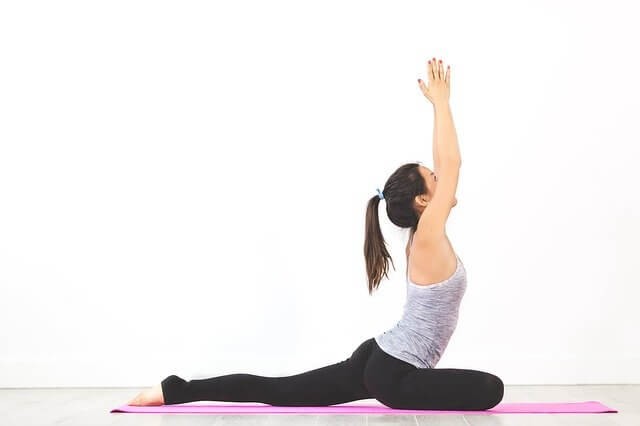That feeling of relief and relaxation after a good stretch? It’s not just in your head. There’s a fascinating interplay of physiological processes happening within your body that make stretching feel so good. This article delves into the science behind that satisfying stretch, exploring the benefits and providing tips for safe stretching practices.
 alt
alt
The Feel-Good Factors of Stretching
Why does stretching feel so incredibly good? Several key factors contribute to this sensation:
Enhanced Circulation: Delivering Oxygen and Removing Waste
Stretching increases blood flow to the targeted muscles and tissues. This improved circulation delivers a fresh supply of oxygen and nutrients while efficiently removing metabolic waste products that can cause muscle soreness and fatigue. This exchange contributes to the feeling of rejuvenation and well-being associated with stretching.
Parasympathetic Nervous System Activation: The Relaxation Response
Stretching triggers the parasympathetic nervous system, responsible for the “rest and digest” functions. This activation promotes a state of calmness and relaxation, counteracting the effects of stress and promoting a sense of overall well-being. This explains why stretching can feel so soothing and stress-relieving.
Endorphin Release: Your Body’s Natural Mood Booster
Stretching, like exercise, stimulates the release of endorphins. These natural pain relievers and mood elevators interact with opioid receptors in the brain, reducing pain perception and creating a feeling of euphoria. This contributes to the pleasurable sensation experienced during and after stretching.
Reap the Rewards: Physical Benefits of Stretching
Beyond the immediate feel-good sensation, regular stretching offers numerous physical benefits:
Increased Flexibility and Range of Motion
Consistent stretching lengthens muscles and improves joint mobility, leading to increased flexibility and a wider range of motion. This can enhance athletic performance, improve posture, and reduce the risk of injury.
Improved Circulation and Cardiovascular Health
Stretching enhances blood flow, not just to muscles, but throughout the body. This can improve cardiovascular health by promoting healthy blood pressure and efficient blood vessel function.
Stress Reduction and Mental Well-being
By activating the parasympathetic nervous system and releasing endorphins, stretching effectively reduces stress and promotes relaxation. This can improve mood, sleep quality, and overall mental well-being.
Enhanced Athletic Performance
Incorporating stretching into a fitness routine can improve athletic performance by increasing flexibility, range of motion, and muscle efficiency. Both static and dynamic stretching play crucial roles in injury prevention and performance enhancement.
Improved Posture and Body Alignment
Tight muscles can contribute to poor posture. Stretching helps to lengthen and loosen these muscles, allowing for better body alignment and improved posture. Combining stretching with core strengthening exercises can further enhance postural improvements.
Stretch Smart: Tips for Safe Stretching
To maximize the benefits of stretching and minimize the risk of injury, follow these guidelines:
Warm-up Before Stretching
Prepare your muscles for stretching by engaging in light aerobic activity, such as jogging or jumping jacks, for 5-10 minutes.
Listen to Your Body
Stretch to the point of mild tension, not pain. Never force a stretch or bounce. Respect your body’s limits and gradually increase your flexibility over time.
Make Stretching a Habit
Aim for daily stretching, even if it’s just for a few minutes. Consistency is key to improving flexibility and reaping the long-term benefits of stretching.
Stretch Both Sides Equally
Maintain balance by stretching both sides of your body equally. Pay attention to any imbalances and focus on stretching tighter areas to promote symmetry.
Avoid Bouncing
Bouncing during stretching can cause muscle strain or injury. Focus on slow, controlled movements and hold each stretch for 15-30 seconds.
Conclusion: Embrace the Stretch
Stretching offers a multitude of physical and mental benefits, from increased flexibility and reduced stress to improved circulation and enhanced athletic performance. By understanding the science behind the satisfying stretch and following safe stretching practices, you can unlock the full potential of this simple yet powerful activity and enjoy a greater sense of well-being.

